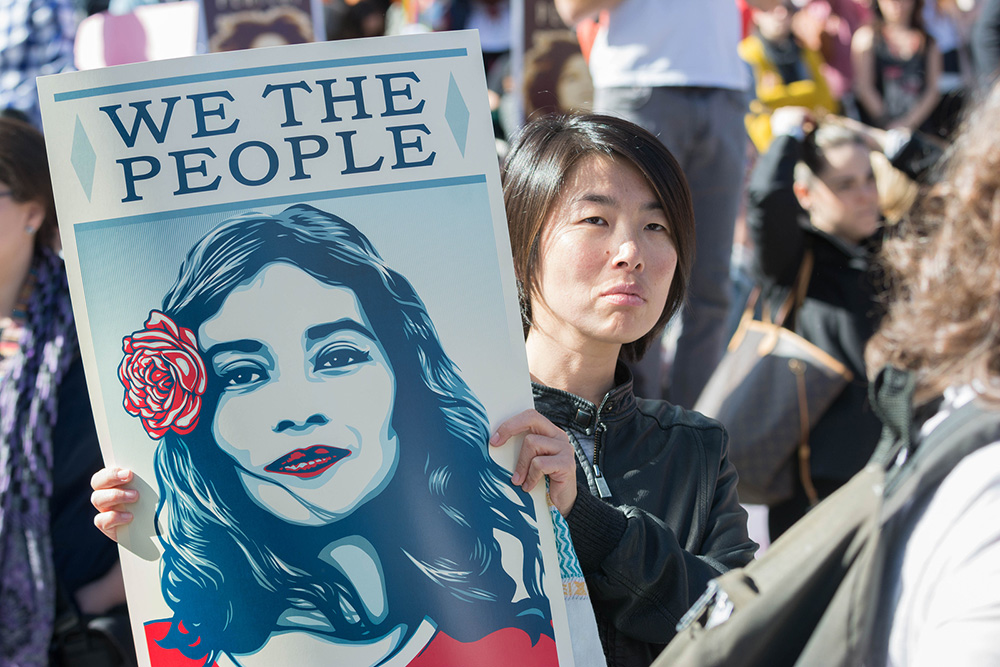Creating change: How int’l students can engage politically while studying abroad
Last year, toxic discharge from a Taiwanese-owned steel plant plagued provinces of Vietnam, ravaging local biodiversity in the region affecting the country’s tourism. An approximated 70 tonnes of dead fish covered a 200km stretch spanning Vietnam’s central coastline in April 2016. Protests erupted; many of the Vietnamese public calling for greater accountability after the company initially denied any wrongdoing.
For Giang*, an Vietnamese international student currently studying in Melbourne, seeing the event unfold from abroad was jarring. While he was worried for the local Vietnamese provinces affected by the spill and wanted to speak out, he was also worried about how his actions could might affect his family.
“Many bloggers have been arrested for opposing or revealing corruption within the government,” Giang explained.
“I would have been more vocal, but [wasn’t] as I was worried about my family in Vietnam,” he continued.
Giang’s concerns were fair. Political dissent may come with a price for some international students with fears about the safety and security of themselves and their loved ones. But when you’re thousands of kilometres away from home and want to engage politically — to help create positive change for your country — how can you?
For Henry*, a South Korean international student studying in the United States at the University of Texas (Austin), social media was an imperative in bridging the gap between himself and politics back home. A political scandal involving former South Korean President, Park Geun-hye, was the source of Henry’s frustrations. News of the former President’s alleged corruption outraged the South Korean public and drew more than one million South Koreans to the streets in non-violent protest.
While Henry was not physically present to join his countrymen in protest, he said the engagement he generated as a product of sharing articles, creating online groups, and writing Facebook posts was stirring. Henry found a community with other students who were able to vent their frustrations together.
“We believed each other and had the belief we could change our country,” he said of the Korean community in Austin, Texas.
Engaging with the workings of your home country is of course dependent on a country’s political climate and legal framework, but for international students who have been afforded that ability to do so, many have benefited.
Bernard, a Malaysian international student from the University of Melbourne, dove head first into the thriving microcosms for political engagement. Working with the Malaysian Progressives in Australia (a non-Government organisation), he has catalysed discussions around Malaysian identity and has spoken with fellow Malaysian students about issues associated with refugees living in the country.
“[Engaging like this] allows me to gauge the sentiments of the Malaysian diaspora [Malaysian students living in Australia] so that I can understand what are the bread and butter issues that effect the average Malaysian,” he said.
Networking has become the cornerstone of growth for the Malaysian Progressives who have previously worked with other NGOs like Saya Anak Bangsa Malaysia to hold the Bersih rallies — a Malaysian rally advocating electoral transparency and good governance.
So for international students looking to make a meaningful difference in politics back home while living in Australia, what are your options?
- Freedom of speech: Consider local and international laws surrounding freedom of speech as well as the political climate in your country of residency and your country of citizenship. In conservative spheres, there can be limitations on what you can say and how you say it. Ask your general consul representative if unsure.
- Contact charities and NGOs (Non-Government Organisations): See if they need an extra pair of hands for their cause – not only will this bolster your resume and help you meet new people, it might prove to be a not so time consuming way to make a difference, in whatever capacity takes your fancy.
- Go and create: Got some skills in photography, writing, or design? Look to your university magazine or a website that you think might be good for you to get your message out there. Creating content is one of the best ways you can engage with people from all over the world.
- Get on social media: Use Facebook for more than just status updates. Social media is a powerful tool so make use of platforms like Facebook, Reddit, and Twitter to engage with an entire world of politics and beyond. Just be careful you aren’t unleashing your inner troll and in the same vein, keep in mind that anonymity can bring out the beast in people.
- Use your university’s services and clubs: Consider checking in with university staff, referring to online resources and accessing student clubs with similar ideals to yours that can help amplify your cause.
So whether your engagement is characterised by social media activity, petition signing, or protesting, there’s certainly something to be said about staying connected to the affairs of your home country while studying abroad and to the things you have a vested interest in. So start some conversations, and see where it takes you.
*Names have been changed to protect students’ identity
